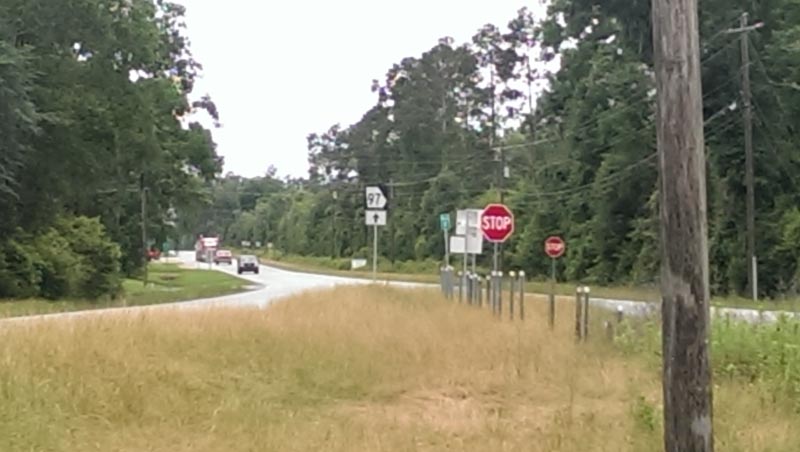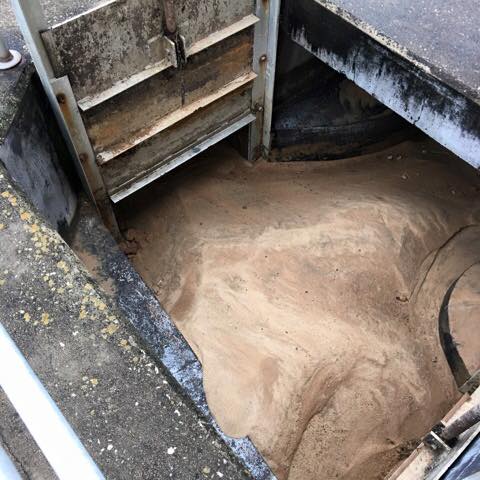
Will Decatur County property taxes see a sharp increase?
Decatur County government officials are currently debating whether or not the county’s millage rate, which affects property tax, will have to be raised significantly to meet the county’s obligations in an agreement recently made with the City of Bainbridge.
There are several parts of the updated Service Delivery Agreement that have to be funded by the county government.
Decatur County Gary Breedlove said that unless county commissioners make budget cuts to offset the new expenses, the impact of the Service Delivery Agreement could cause the county government to raise its millage rate by 4.5 mills (an amount equal to roughly $3.7 million dollars in property tax).
Hospital
Starting in 2015, the County agrees to fund any deficiency in an Indigent Care Fund to be set up by Memorial Hospital. In past years, Decatur County had set aside half a mill of property tax to go toward the hospital’s budget.
indigent – Having insufficient income to pay for medical care or other living necessities. Medical Dictionary for the Health Professions and Nursing © Farlex 2012
The formula to see how much Decatur County will be on the line for goes like this:
(How much it costs Memorial Hospital to treat patients who are unable to pay for care)
– any sources of state or federal revenue that can be used to offset indigent care
– any portion of Memorial Hospital’s budget set aside for indigent care
= Defiency in Indigent Care Fund or County’s Responsibility
The SDS agreement says “Commencing in 2015, the County agrees to fund said defciency by a uniform ad valorem property tax levy in an amount not to exceed two mills per year.” A mill of county property tax was worth $818,518 in 2014. Using that figure, Decatur County could have to pay up to $1.64 million per year to fund indigent care at Memorial Hospital.
Recreation
 Under the service delivery agreement, the City of Bainbridge will continue to pay for maintenance of city parks, and Decatur County will pay for upkeep of boat landings and the Silver Lake Wildlife Management Area.
Under the service delivery agreement, the City of Bainbridge will continue to pay for maintenance of city parks, and Decatur County will pay for upkeep of boat landings and the Silver Lake Wildlife Management Area.
However, the SDS agreement proposes that beginning in 2017, all city and county recreational activities will be funded by a Recreational Authority. The authority will be governed by a board of directors–three members picked by the City of Bainbridge and three members picked by Decatur County commissioners.
The Recreational Authority, which will first have to be approved by the State Legislature, will fund the recreational programs available to all citizens of Decatur County (think baseball, softball, football etc.) The agreement states that during 2015 and 2016, “the County shall levy a uniform ad valorem tax on all non-exempt property located within Decatur County in the amount of 1.5 mills.”
Starting in 2017, when the recreational authority takes over recreation from the City of Bainbridge, the programs will be funded by a millage rate of 1.25 mills. The authority will also be responsible for maintenance, operation, repair and improvements required to maintain recreational facilities owned by the City of Bainbridge (such as the Bill Reynolds Sports Park and tennis center.)
Unless Decatur County commissioners make budget cuts equal to 1.5 mills (or $1.22 million in 2014 figures), the county’s millage rate will have to be increased by 1.5 mills. That millage will be applied to property taxes paid by all property owners within Decatur County, both within the City of Bainbridge and outside it.
Combine the recreational authority millage of 1.5 mills with the maximum millage rate the county could have to put towards indigent health care, and you have 3.5 mills. Current estimates for other service delivery agreements listed below could tack on another mill, for a total of 4.5 mills ($3.7 million).
Roads
Another part of the service delivery agreement is that Decatur County agreed to pitch in on the cost of the City of Bainbridge maintaining county roads that are partially located within city limits.
Examples of roads that qualify are Lake Douglas Road, Whigham Dairy Road and Belcher Lane.
Starting on December 31, 2015 and continuing every year after that, Decatur County will give the City of Bainbridge $125,000 per year to go toward road maintenance. That $125,000 figure will be adjusted on an annual basis consistent with the Consumer Price Index (CPI), which tracks inflation.
The $125,000 annual payment will come from ad valorem tax paid by owners of property located outside the City of Bainbridge.
Other county services
Under the SDS agreement, Decatur County also agreed to classify the above services as ones that “primarily benefit the unincorporated area of Decatur County.”
Group 1:
- Animal Control Services
- Code Enforcement, Land Use, Planning and Zoning
- Fire Protection Services
Group 2 (Enterprise Fund):
- County Prison (the state prison, not the County Jail)
- Golf Course
- Landfill / Solid Waste Disposal
- Natural Gas
- Water and Sewer
The county services in Group 2 are also ones considered to primarily benefit the unincorporated areas of Decatur County. They will be grouped into an Enterprise Fund for budget purposes.
Enterprise fund services are allowed to make a profit, like a business does. For example, the Decatur County landfill makes a “profit” of about $2 million per year, because of the large volume of solid waste that is sent there by customers at the per-ton price set by Decatur County. The profit can be banked or put towards improving the enterprise fund’s assets, such as heavy equipment.

The agreement states the cost of said services, including any associated debt, shall be funded by the County through the establishment of a “special service district in which user fees and property taxes are imposed or levied on the residents, individuals, property owners and taxpayers in the unincorporated area of Decatur County.”
Another way of saying that is this: City of Bainbridge property owners pay taxes that go to Decatur County government as well as the city government. Until now, the county has been using part of the tax money it gets from City of Bainbridge residents to fund certain county departments like the county prison and county fire department. Under the service delivery agreement, Decatur County can no longer apply its share of city taxpayers’ property tax to go toward those services.
This will result in the county having to find other ways of boosting the revenue it takes in, to make up for the loss. That could come from new or increased fees for building and planning permits, or county-issued animal tags, or higher utility usage charges for businesses in the Decatur County Industrial Park.
Or it could also come from increasing property taxes for people who own land outside the City of Bainbridge. The agreement does allow Decatur County to use property tax money from both city and county taxpayers to go towards its Enterprise Fund for the 2015-2016 fiscal year. After that, only tax money from unincorporated Decatur County can fund the Enterprise Fund services.
In other words, City of Bainbridge taxpayers will no longer fund operation of the county landfill, nor will they fund operation of public utilities for businesses located at the Decatur County Industrial Air Park. Even though the City of Bainbridge currently uses 24 county prison inmates to perform various maintenance duties, city taxpayers will no longer fund operation of the county prison. (The City of Bainbridge will still pay a $110,000 annual fee to employ 2 guards to supervise those inmates.)
In part two of this article, we will include comments on the Service Delivery Agreement from members of the Bainbridge City Council and Decatur County commissioners, as well as the city manager and county administrator.




Since the mediation was a result of a discrepancy in the distribution of tax levels inside and outside of Bainbridge, and the millage rate increase in Bainbridge was predicated on the anticipated taxes necessary to cover this discrepancy, can the residents of the City of Bainbridge anticipate the reversal of the recent millage rate increase?